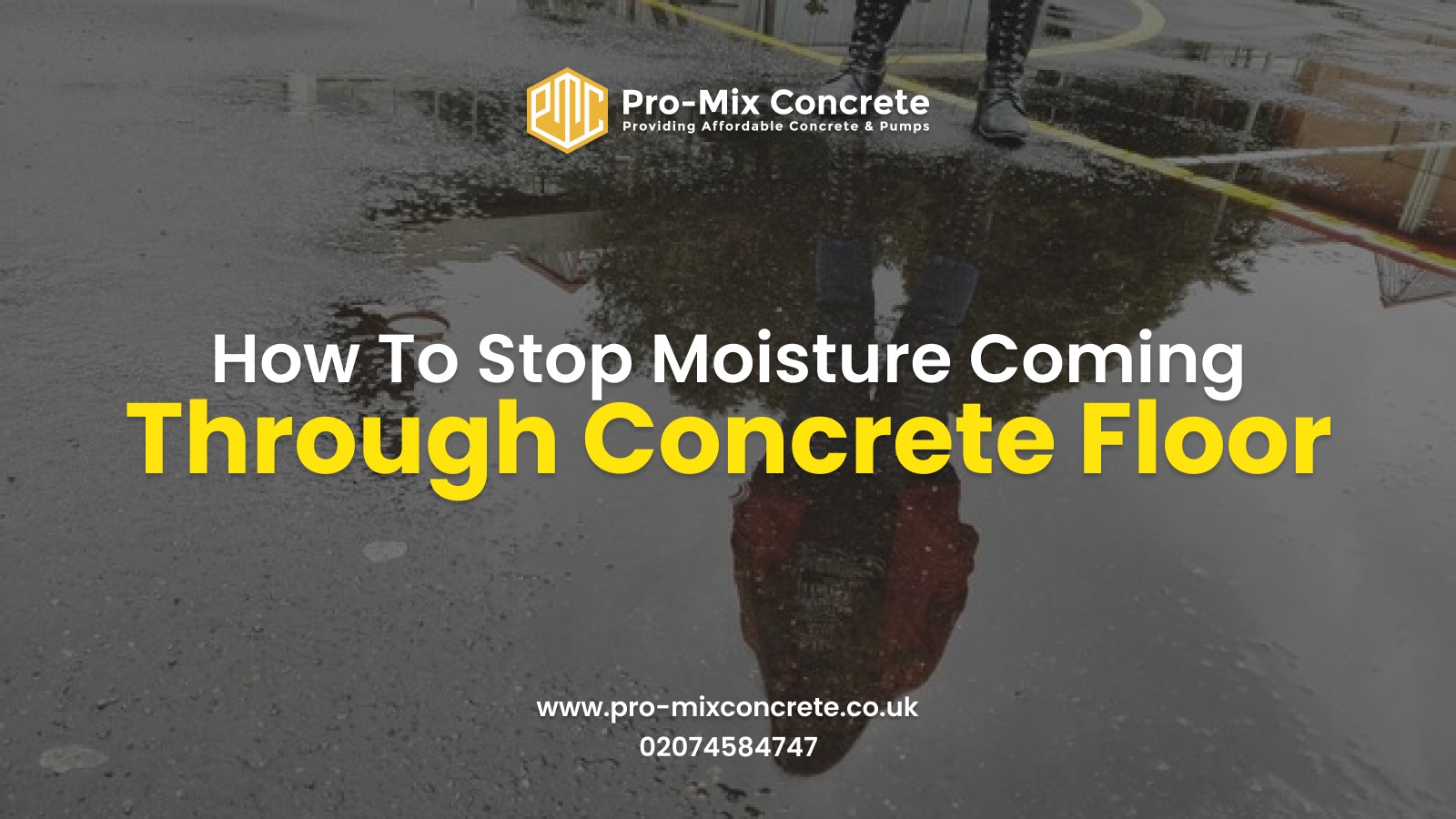If you work in the construction or building materials industry, you understand the importance of preventing moisture from damaging concrete floors. Concrete moisture can lead to structural damage and mold growth, which can be harmful to your health. Learning how to stop moisture coming through the concrete floor is a crucial skill for maintaining building integrity. To prevent these issues, it is essential to use a concrete moisture meter.
What is a Concrete Moisture Meter?
A concrete moisture meter is a device that measures the amount of moisture in concrete and is an essential tool for anyone in the construction and building materials industry. A moisture meter helps you determine if the concrete is dry enough to lay flooring or install coverings, as well as identify potential issues before they become major problems.
Understanding whether concrete absorbs moisture is fundamental—and yes, it absolutely does, even when properly cured. Can moisture penetrate concrete? Unfortunately, it can, through microscopic pores and hairline cracks that develop over time. Using a moisture meter can save time and money on repairs and replacements.
2 Types of Concrete Moisture Meters
Concrete moisture meters generally fall into two main categories based on their testing methodology:
- Invasive Meters: These meters use pins or probes that penetrate the concrete surface to take readings.
- Provide deeper moisture profile information
- More accurate for subsurface moisture detection
- Leave small holes that may require patching
- Non-invasive Meters: These use electromagnetic sensors that don’t damage the concrete.
- A completely non-destructive testing method
- Quick readings across multiple locations
- Limited to detecting moisture near the surface
Specific Meter Technologies
When selecting the right tool to identify how to stop moisture coming through the concrete floor, consider these three technology types:
Pin-Type Moisture Meters
These traditional meters use two metal pins inserted into the concrete to measure electrical resistance. Since water conducts electricity, higher moisture content results in less resistance. They’re particularly effective for:
- Thick concrete slabs where depth readings are critical
- Situations requiring precise moisture gradient measurements
- Projects where surface appearance isn’t a primary concern
Pinless Moisture Meters
These modern devices use radio frequency signals to detect moisture without damaging the concrete surface. They operate by:
- Emitting electromagnetic waves that interact with moisture
- Measuring the reflection or impedance of these waves
- Converting signal differences into moisture content readings
Hybrid Moisture Meters
The most versatile option, hybrid meters combine both technologies in one device, allowing you to:
- Start with non-destructive scanning to identify problem areas
- Follow up with pin testing in specific locations for confirmation
- Get the most comprehensive moisture profile of your concrete
How to Use a Concrete Moisture Meter?
Before using a moisture meter, it is essential to prepare the concrete surface properly. It is recommended to clean the surface and remove any dirt, dust, or debris. The moisture meter should be calibrated before use to ensure accurate readings.
To use the moisture meter, follow these steps:
- Turn on the moisture meter and select the appropriate mode.
- Insert the pins or place the sensor on the concrete surface.
- Wait for the reading to stabilize and record the moisture content.
- Repeat the process in different areas to obtain an average reading.
Common mistakes to avoid when using a moisture meter include using the wrong mode, using a damaged or uncalibrated moisture meter, and not taking enough readings. To obtain accurate and reliable moisture readings, it is recommended to take multiple readings in different areas.
Benefits of Using a Concrete Moisture Meter
Understanding moisture levels in concrete provides numerous advantages for construction professionals and property owners alike. Here’s why investing in a quality moisture meter is essential:
1. Preventing Costly Structural Damage
Concrete moisture barrier solutions are only effective when applied at the right time and under the right conditions. A moisture meter helps you:
- Determine the optimal timing for installing flooring or applying sealants
- Verify that moisture levels meet manufacturer specifications before material installation
- Identify potential problem areas before they lead to expensive failures
- Document moisture conditions for warranty and insurance purposes
2. Protecting Health and Indoor Air Quality
Excess moisture creates the perfect environment for biological growth that can affect building occupants:
- Early detection prevents mold and mildew development that can trigger respiratory issues
- Helps maintain a healthier indoor environment by ensuring dry conditions
- Reduces the risk of allergens that thrive in damp environments
- Protects valuable contents from moisture damage and microbial contamination
3. Improving Project Efficiency and Outcomes
Using a moisture meter throughout a construction or renovation project provides significant time and cost advantages:
- Eliminates guesswork about when to proceed with moisture-sensitive installations
- Reduces project delays by accurately forecasting when conditions will be suitable for the next steps
- Prevents expensive callbacks and warranty claims related to moisture problems
- Helps determine if additional concrete moisture barrier systems are needed in specific areas
When you consider that moisture-related problems account for billions in construction damages annually, the modest investment in a quality moisture meter makes clear financial sense for professionals in the building industry.
Factors Affecting Concrete Moisture Readings
Several factors can affect concrete moisture readings, including temperature, humidity, and surface conditions. Does concrete absorb moisture from the environment after installation? Yes, and factors like ambient humidity can significantly influence readings. Concrete additives and curing time can also affect moisture readings.
|
Factors Affecting Concrete Moisture Readings |
Description |
|
Temperature |
The temperature of the concrete surface can affect moisture readings. |
|
Humidity |
The humidity of the concrete surface can also affect moisture readings. |
|
Surface Conditions |
The surface conditions of the concrete, such as dirt or debris, can affect moisture readings. |
|
Concrete Additives |
Concrete additives can affect moisture readings. |
|
Curing Time |
The curing time of the concrete can also affect moisture readings. |
To overcome inaccurate readings, it is recommended to measure the temperature and humidity of the concrete surface before taking readings. It is also important to wait for the concrete to cure before taking readings.
What are ASTM Standards for Concrete Moisture Testing?
ASTM International is an organisation that develops and publishes technical standards for various industries. In the construction and building materials industry, ASTM standards are used for concrete moisture testing.
There are several ASTM test methods for concrete moisture testing, including the calcium chloride test, relative humidity test, and electrical impedance test. It is essential to follow ASTM standards for accurate and reliable moisture readings.
Maintenance and Care of Concrete Moisture Meters
To ensure the longevity of your moisture meter, it is essential to clean and store it properly. It is also recommended to calibrate the moisture meter regularly for accurate readings.
Common problems with moisture meters include damaged pins, dirty sensors, and dead batteries. To troubleshoot these issues, refer to the manufacturer’s instructions. Regular maintenance and calibration can ensure the long-term use of your moisture meter.
Choosing the Right Concrete Moisture Meter
When selecting a moisture meter, it is essential to consider several factors, including the type of concrete, the thickness of the slab, and the budget. Popular brands and models of moisture meters include Wagner Meters, Delmhorst, and Protimeter.
Pin-type moisture meters are ideal for thicker concrete slabs, while pinless moisture meters are better for thinner slabs. Hybrid moisture meters combine the benefits of both types of moisture meters. The price range for moisture meters varies depending on the type and features.
Conclusion
Using a concrete moisture meter is an essential tool for anyone involved in the construction and building materials industry. It helps to prevent moisture damage, save time and money on repairs and replacements, and ensure the longevity of materials. When selecting a moisture meter, it is essential to consider several factors, including the type of concrete and the budget.
Moisture issues in concrete can lead to costly repairs, delays, and structural damage. At Pro-Mix Concrete, we provide high-quality, moisture-resistant concrete mixes designed to keep your projects strong and durable.
Trust us for consistent quality, fast delivery, and expert support. Contact us today for a mix that stands the test of time!
Frequently Asked Question
Yes, moisture can penetrate concrete despite its solid appearance. Concrete is naturally porous with microscopic capillaries that allow water vapor and liquid water to migrate through the material over time.
First identify the moisture source (groundwater, leaks, condensation). Then implement solutions such as vapor barriers, moisture mitigation systems, or drainage improvements. For existing floors, apply specialised epoxy or polyurethane sealers that create an effective moisture barrier when properly installed.
It measures the electrical resistance of the concrete to determine moisture content. The principle relies on the fact that water conducts electricity, so higher moisture levels result in lower electrical resistance that can be measured and converted to meaningful readings.
It helps prevent moisture-related problems in concrete, such as cracking and mold growth. Using a moisture meter also protects expensive flooring investments and ensures compliance with manufacturer warranties.
They can vary in accuracy, but high-quality models can provide precise readings. The most accurate results come from following proper testing protocols, ensuring the meter is properly calibrated, and using the appropriate type of meter.
- Dennis Broderick
- Dennis Broderick is the founder and owner of Pro-Mix Concrete Company, a trusted name in ready-mix concrete solutions across the UK. With over 20 years of hands-on experience in the construction and concrete industry, Dennis brings unmatched expertise, practical insights, and a commitment to quality on every project - from residential driveways to large-scale commercial developments.
 BlogDecember 8, 2025How Do You Calculate The Concrete Required For A Job?
BlogDecember 8, 2025How Do You Calculate The Concrete Required For A Job? BlogNovember 26, 2025Ready Mix Concrete Costs UK: 7 Key Factors That Affect Your Price Per m³
BlogNovember 26, 2025Ready Mix Concrete Costs UK: 7 Key Factors That Affect Your Price Per m³ BlogNovember 26, 2025How Long Does Concrete Take To Cure?
BlogNovember 26, 2025How Long Does Concrete Take To Cure? BlogNovember 20, 2025How To Measure Concrete With A Concrete Calculator?
BlogNovember 20, 2025How To Measure Concrete With A Concrete Calculator?





